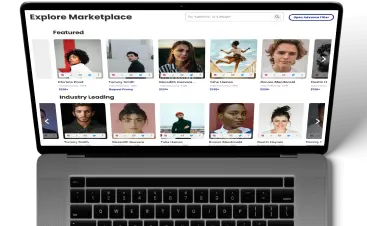The modern customer increasingly disregards conventional advertising, seeing suggestions from renowned individuals as more credible. Influencer marketing is often considered a B2C tactic. Social media influencer videos make it tough to imagine how influencer marketing might function in a B2B context.
If you know how to use B2B, influencer marketing may provide significant returns for your brand. This article will explain B2B influencer marketing and how you can develop it.
Essential Points in B2B Influencer Marketing
For B2B purchasers, reviews, specs, and Googling are common first steps in the purchasing process. Long-term objectives and commitment are required in most B2B transactions, meaning the sales cycle might take longer. A talk with a colleague is often the first step in the process of a potential B2B buyer doing comprehensive research before direct contact with a brand.
B2B purchasers spend days, weeks, or even months studying a product, taking advice from colleagues, and gathering information from others in their industry. Lifestyle postings and comedy may have an enormous impact in a B2C context because the interests of the average customer are more important than those of brand organizations. It’s more common for B2B influencers to concentrate on the brand’s specific demands and be skeptical of decisions that have long-term effects on the worksite.
It’s critical for persons in their situation to have the support of an impartial third party. Influencer marketing must be part of your overall marketing strategy since clients are likelier to believe what you say if you use it.
Developing the Strategy for B2B Influencer Marketing
Following are the steps to develop the strategy for B2B influencer marketing.
-
Defining the Purposes
Goal-setting is the first stage in establishing an effective plan. What goal do you want to accomplish with the marketing campaign for your brand? Both B2C and B2B have similar objectives, such as raising brand recognition, boosting sales leads, or both. B2B influencer marketing is targeted at a different audience than B2C influencer marketing, which is geared at consumers. As a rule, you’ll find them at purchasing centers with representatives from several departments.
-
Trying to Make a Story
Your brand narrative should be the centerpiece of your efforts. What is your name, exactly? Can you provide an example of how your goods or services benefit other brands? What thing makes you unique from the competition? What distinguishes you from your rivals? Why would a potential buyer select your offer over another’s?
-
Identify Influencers That Fit Your Brand’s Purpose
The second step is to consider who your suitable influencer would be. Your influencer likely has many followers, but who is it? Have they had any prior work or professional experience before this? How powerful is this marketer’s influence? What kind of social media following do they have? What if these people are connected to brands that might benefit from your product?
-
Make Contact with the B2B Influencers
You will then reach out to the B2B influencers and propose that they collaborate. You may work out a campaign’s kind of material and a strategy for developing, publishing, and disseminating it at this point in the campaign planning stage.
-
Analyze the Outcomes
After the marketing campaign is finished, you still have a lot to accomplish. Observe and record the outcomes now. You can use this to determine what modifications you should make for the upcoming campaign.
Benefits of B2B Influencer Marketing
When we think of “influencers,” we usually think of young people in the B2C market, like fashion and beauty bloggers promoting well-known brands’ wares. Maybe that’s why B2B influencer marketing has grown slowly and is still viewed with suspicion. However, studies and the successful B2B influencer marketing campaigns of well-known and lesser-known brands show that B2B influencer marketing may assist your brand by connecting you with an audience that would be difficult to reach otherwise.
B2B influencer marketing can be especially effective if your brand and products are not well recognized. To expand your client base, you can utilize a B2B influencer’s current network. It will give access to previously inaccessible brands if you collaborate with the influencer and use the influencer’s network.
Conclusion
Using B2B influencers in your marketing strategy have a significant impact. By capturing their purchasing power, you can use an influencer’s passionate following to develop more trust and relationships with critical audiences. It’s essential to keep in mind, however, that influencer marketing for B2B demands a more specific and deliberate strategy than that for B2C. So what are you waiting for? Use the ideal influencers to create your brand and position yourself as an expert in your field.





